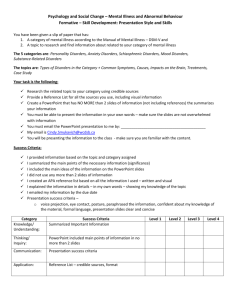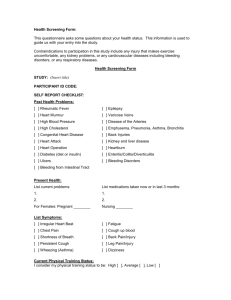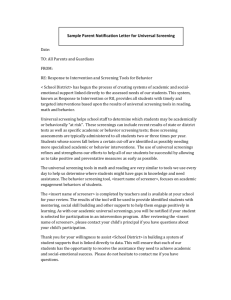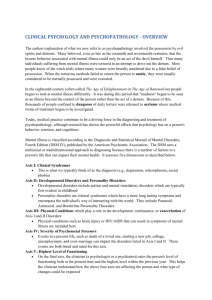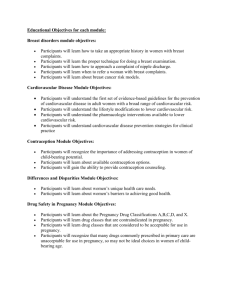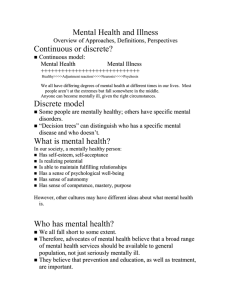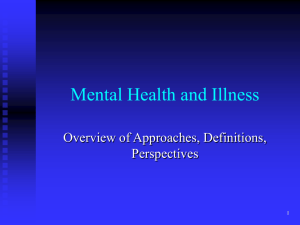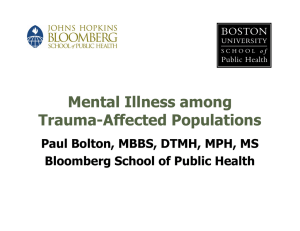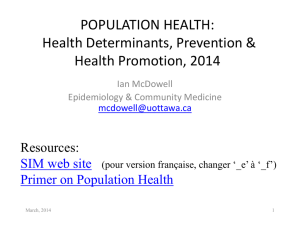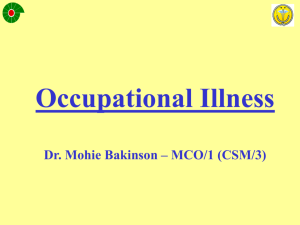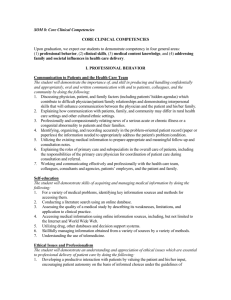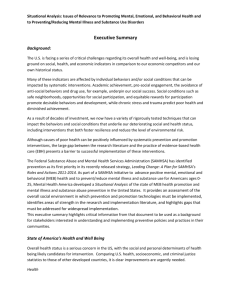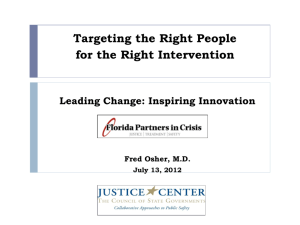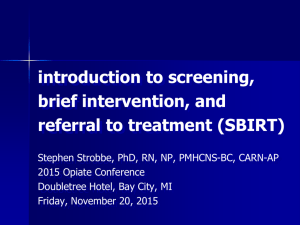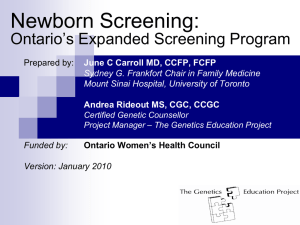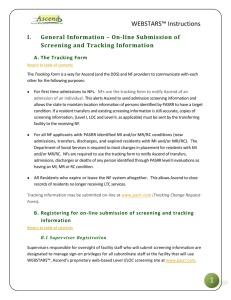Report in MS Word Format
advertisement
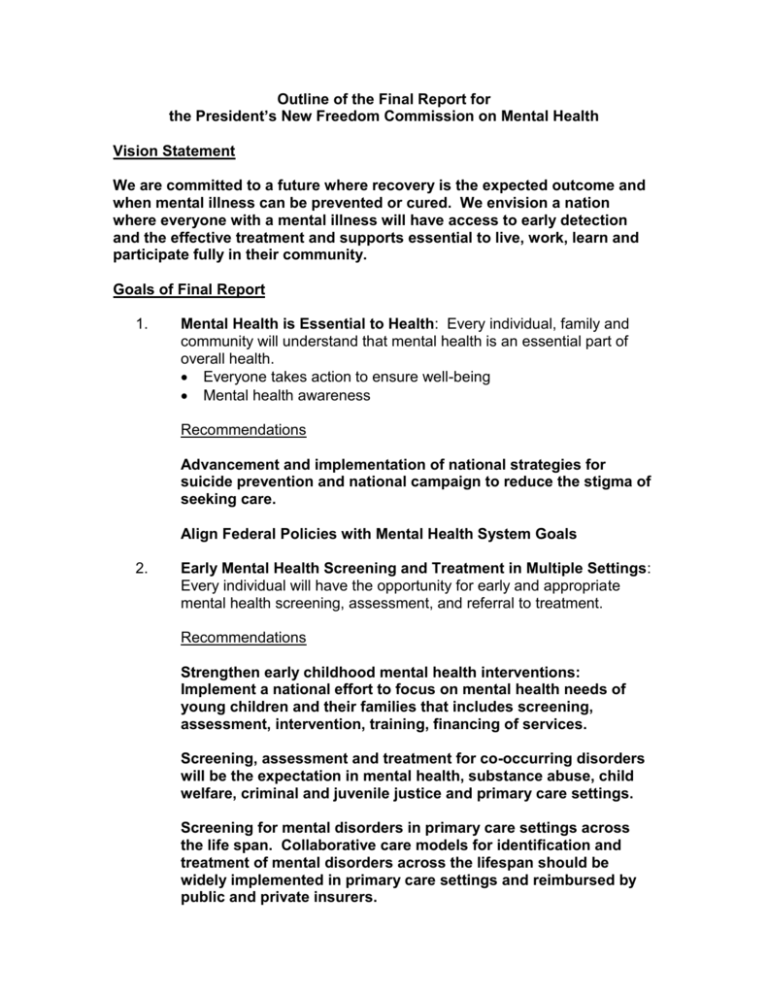
Outline of the Final Report for the President’s New Freedom Commission on Mental Health Vision Statement We are committed to a future where recovery is the expected outcome and when mental illness can be prevented or cured. We envision a nation where everyone with a mental illness will have access to early detection and the effective treatment and supports essential to live, work, learn and participate fully in their community. Goals of Final Report 1. Mental Health is Essential to Health: Every individual, family and community will understand that mental health is an essential part of overall health. Everyone takes action to ensure well-being Mental health awareness Recommendations Advancement and implementation of national strategies for suicide prevention and national campaign to reduce the stigma of seeking care. Align Federal Policies with Mental Health System Goals 2. Early Mental Health Screening and Treatment in Multiple Settings: Every individual will have the opportunity for early and appropriate mental health screening, assessment, and referral to treatment. Recommendations Strengthen early childhood mental health interventions: Implement a national effort to focus on mental health needs of young children and their families that includes screening, assessment, intervention, training, financing of services. Screening, assessment and treatment for co-occurring disorders will be the expectation in mental health, substance abuse, child welfare, criminal and juvenile justice and primary care settings. Screening for mental disorders in primary care settings across the life span. Collaborative care models for identification and treatment of mental disorders across the lifespan should be widely implemented in primary care settings and reimbursed by public and private insurers. Building on “No Child Left Behind Act” and the reauthorization of Individuals with Disabilities Education Act (IDEA), improve and expand mental health programs in schools to ensure that youth with emotional and behavioral disorders succeed and graduate from school. 3. Consumer/Family Centered Care: Consumers and families will have the necessary information and the opportunity to exercise choice over the care decisions that affect them Continuous healing relationships will be a key feature of care Recommendations States should ensure that each adult with serious mental illness (SMI) and each child with serious emotional disturbance (SED) and his or her family has a single, individualized plan of care. Create an integrated state plan for treatment and support Expanding the recovery orientation of the system of care by increasing the opportunities and capacities of consumers to share their inspiration, knowledge, and skills. Strengthen and expand supported employment Protect and enhance rights Expand criminal justice and juvenile justice diversion and re-entry programs. Medicaid/Medicare/financing reform that includes references to parity, home/community based services, and IMD reform. Improve access to housing and end chronic homelessness 4. Best Care Science Can Offer: Adults with serious mental illness and children with serious emotional disturbance will have ready access to the best treatments, services, and supports leading to recovery and cure. Accelerate research to enhance prevention of, recovery from and ultimate discovery of cures for mental illnesses. Recommendations Accelerate research to cure or prevent mental illness. Continue research to improve mental health outcomes and support recovery. Expand the knowledge base to inform policy designed to reduce mental heath disparities, long-term effects of medications, and develop process to study crisis interventions and acute care. Evidence-based practice interventions should be tested in demonstration projects with oversight by a public-private consortium of all stakeholders. The results of those demonstrations should form the basis for directing support of financing, dissemination and workforce development. Increase and improve a diverse mental health workforce across the country, through public-private partnerships based on multidisciplinary training models. 5. Information Infrastructure: The mental health system will develop and expand its information infrastructure. That infrastructure has many purposes: Inform consumers, providers and public policy Improve access, quality, accountability Recommendations Use information technology to improve care. Inform policy by expanding the knowledge base 6. Eliminate disparities in mental healthcare: promote well-being for all people regardless of race, ethnicity, language, place of residence, or age and ensure equity of access, delivery of services, and improvement of outcomes for all communities. Recommendations Establish funding incentives for recruitment and retention of mental health professionals in rural settings. Through a public and private partnership develop and implement comprehensive public health policies which reduce barriers to access, improve community outreach and engagement, and ensure development of culturally competent care to racial and ethnic minorities.
